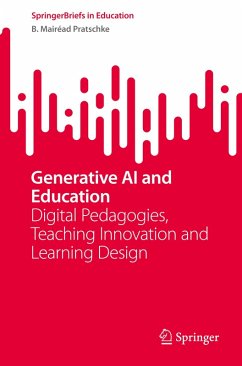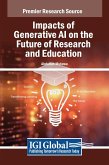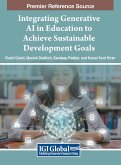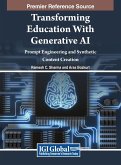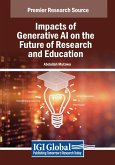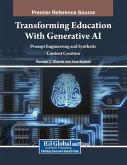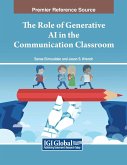This volume addresses the gap in knowledge around generative AI and its applications in education. It draws on the recent history of technological innovation and digital pedagogies, locating generative AI in the contemporary discourse around education futures. It argues that a new hybrid model of education is emerging, requiring educational institutions to embed generative AI into course and programme design, delivery and assessment. It also proposes a shift from a focus on learning as output to learning as a process, and explores what that shift might look like. Grounded in educational theory, it offers actionable pedagogy-informed guidance on how to position AI as a collaborator in the construction of learning in a manner that is congruent with the values and aims of education. It offers advice based on evidence-based digital pedagogy, including frameworks for effective teaching and learning with generative AI, that enable educators and designers to put these ideas into practice.
The book also explores the wider context informing this shift, connecting narratives from governments and industry leaders on the strategic importance of generative AI and lifelong learning, learning agility, and future skills that make the case for the integration of competency-based assessment into mainstream education. Finally, going beyond pedagogy and practice, it considers of some of the broader issues, including limitations and ethics, and the implications of integrating generative AI into institutional planning and design, and includes a sample roadmap for education leaders to start the process of integrating generative AI into their institutions.
This work approaches the topic of generative AI from the vantage point of educators by addressing themes and concerns that will resonate with professionals in the sector.
The book also explores the wider context informing this shift, connecting narratives from governments and industry leaders on the strategic importance of generative AI and lifelong learning, learning agility, and future skills that make the case for the integration of competency-based assessment into mainstream education. Finally, going beyond pedagogy and practice, it considers of some of the broader issues, including limitations and ethics, and the implications of integrating generative AI into institutional planning and design, and includes a sample roadmap for education leaders to start the process of integrating generative AI into their institutions.
This work approaches the topic of generative AI from the vantage point of educators by addressing themes and concerns that will resonate with professionals in the sector.

